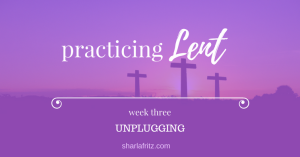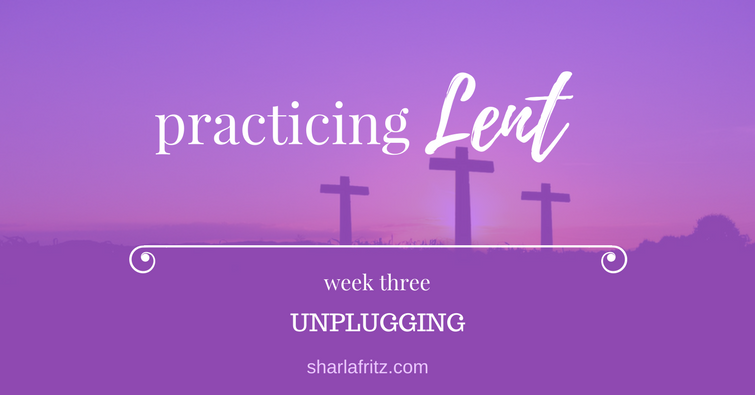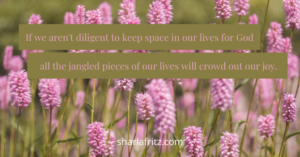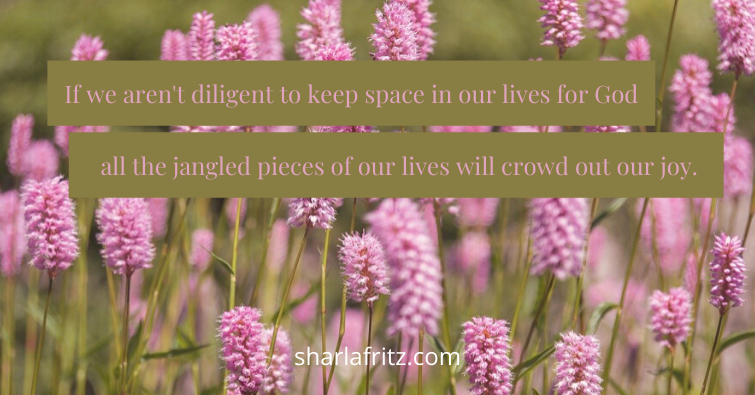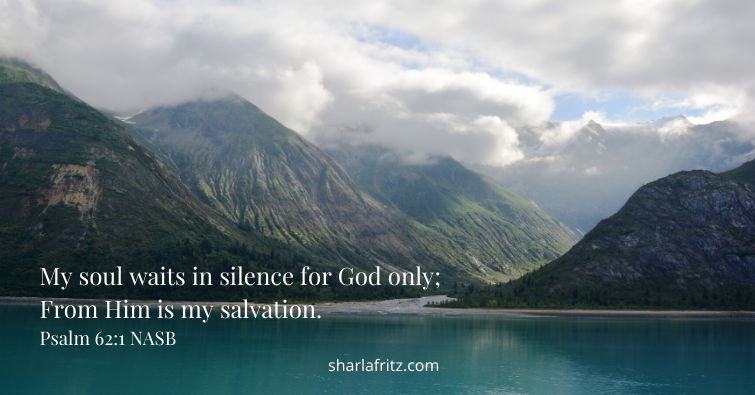
“Be still, and know that I am God” Psalm 46:10
I love those words. These eight simple syllables bring relaxation to my body just by reciting them. They create pictures of serene sunsets in my mind. They produce peace in my soul.
But life is hectic. How often do I actually take time for stillness? And what does “be still” mean anyway? Here are four looks at the meaning of that phrase.
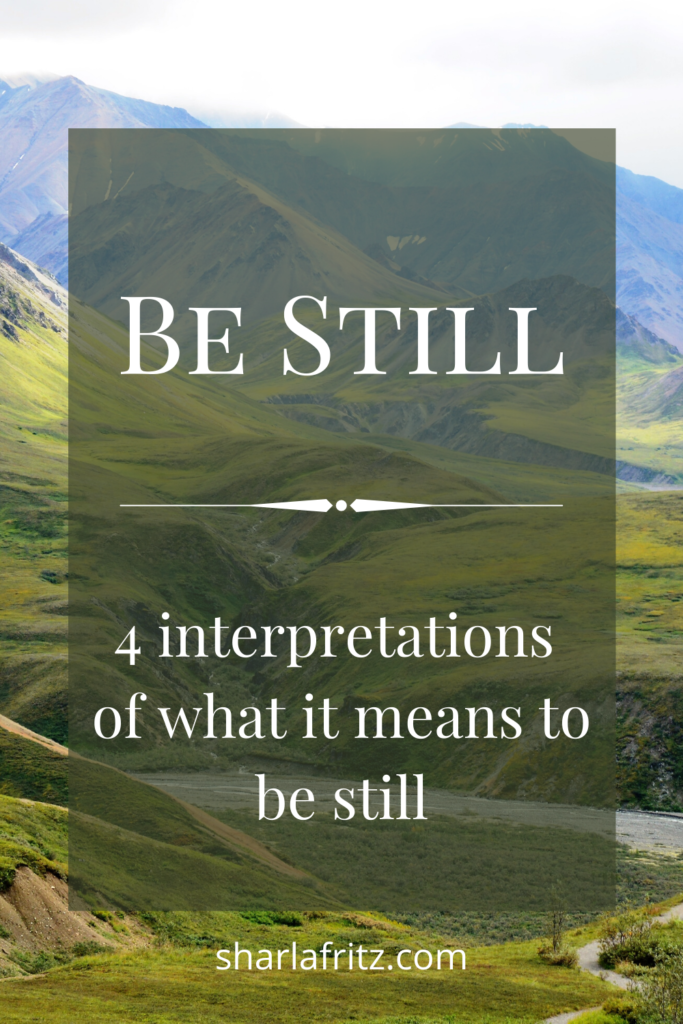
To be still is to obey God’s command to be quiet because He knows what is best for us. Years ago I heard author Cynthia Heald speak on this verse. She said that God’s admonition to “be still” was a little like a mother telling her children to “Be quiet” in church. She pictured a parent shaking her child by the shoulder to get him to settle down and pay attention if he knew what was good for him. God invites us to rest. But because we don’t always listen, He issues a command–a command for our own good.
To be still is to relax knowing God is God. John Piper, author of Desiring God, writes about coming back from vacation and feeling overwhelmed by all the tasks that needed to be done. So what did he do first? He went to his quiet basement and read Psalm 46. He told himself, “Be still, soul! Stop rehearsing. Relax. Breath deep. There. Now, know this: God is God. God is God. Just be still and let that hit you. Let it grow.” (Click here to read more.) We can relax because God is all-powerful and always has our best interests in mind.
To be still is to rest in God’s love. Pastor R.C. Sproul, also writes about Psalm 46. he reminds us that we cannot come to the point of relaxing in God’s arms until we remember His great love for us. “We will rest in His sovereignty when we remember not just that He is almighty, but that He who is almighty loves us with an everlasting love.” (Click here to read more.) We can rest in God’s arms because His Word reminds us of His relentless love and never-ending care for us.
To be still is to let go. What do these words mean in the original Hebrew? The site hebrew4christians.com tells us that, “The command to “be still” comes from the Hiphil stem of the verb (רפה) rapha (meaning to be weak, to let go, to release), which might better be translated as, “cause yourselves to let go” or “let yourselves become weak.” To be still is to surrender to the almighty God who loves you more than life. To loosen our grip on our issues and problems and trust in God’s ability to manage everything for the best.
In our rush-rush world, stillness can be as elusive as quiet on a freeway. But a stillness of soul is more of an attitude of the heart than a condition of silence. When your heart becomes anxious, when your soul starts to churn, remember: God is in control, He loves me with a relentless love. He commands me to be still because He knows what is best for me. He invites me to let go of my concerns and worries because He wants to manage them for me.
Next step: Monitor the state of your soul today. When you start to feel anxious, repeat the words of Psalm 46:10 to your spirit, “Be still, and know that I am God.” Which of the interpretations of that phrase do you need most today? For more on the Spiritual Discipline of silence, look here.

